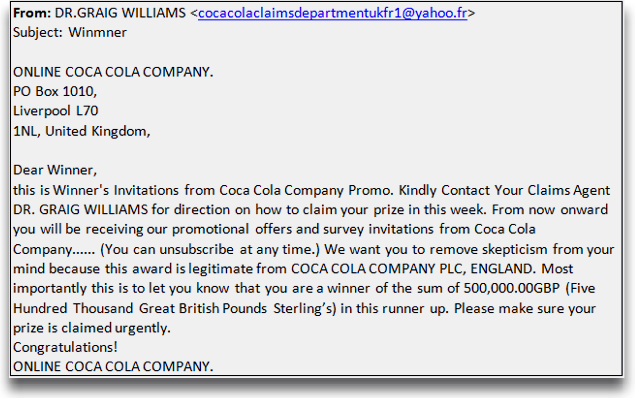That’s Great! …but is it enough?
Sometimes the most dangerous emails look friendly.
In fact, “Phishing” is a very common scam.
“Phishing” is when scammers send email messages pretending to be from a trusted person, company, or organization.
Phishing emails will try a variety of ways to get you to respond. Here are a few examples:
THE “CONTEST WINNER” SCAM:
These emails pretend to be well known companies (or even national lotteries) like the example below.

Forget for a moment that you probably didn’t enter the contest you’re told you won (the scammers hope you will), even if you did enter such a contest or lottery, there are other “red flags” that let you know this email is a scam:
1. A genuine Coca-Cola email address would have the Coca-cola.com domain but the domain of the address in this email is “yahoo.fr”
2. The Subject is mis-spelled: “Winmner” (Mis-spellings are always a red flag when dealing with emails claiming to be from large companies)
3. The email itself has awkward sentence structuring – even while it is telling you not to be suspicious!
Would this email have “caught you? Tap your answer to continue.




